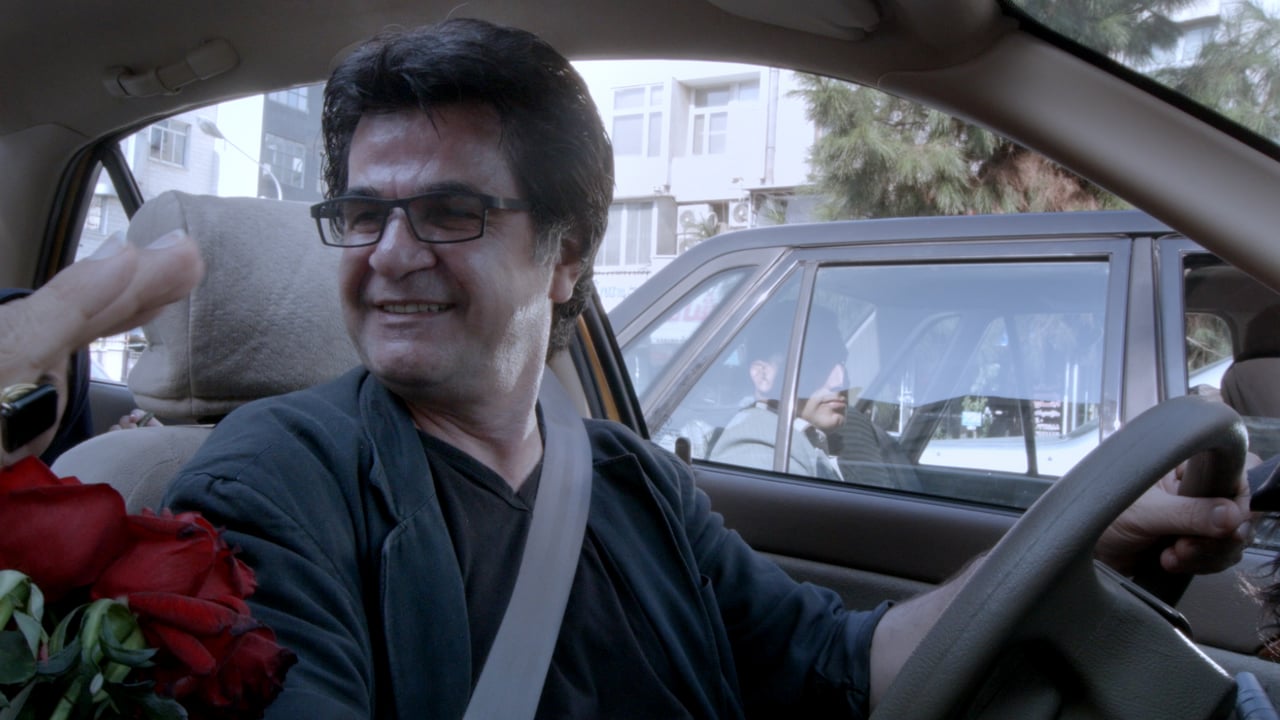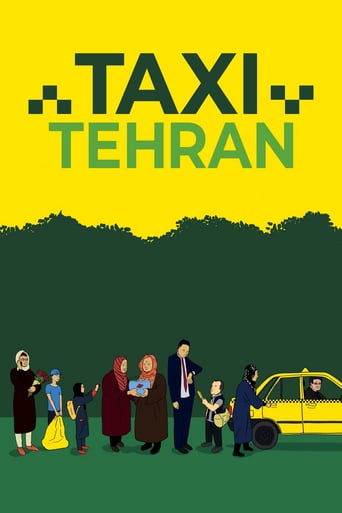

As somebody who had not heard any of this before, it became a curious phenomenon to sit and watch a film and slowly have the realities begin to click into place.
... View MoreNot sure how, but this is easily one of the best movies all summer. Multiple levels of funny, never takes itself seriously, super colorful, and creative.
... View MoreYes, absolutely, there is fun to be had, as well as many, many things to go boom, all amid an atmospheric urban jungle.
... View MoreA clunky actioner with a handful of cool moments.
... View MoreJafar Panahi is banned from making movies so he disguises as a taxi driver and makes one in a taxi cab. He didnot change his appearance of course but wore a hat and made a documentary-like film mostly while driving in the streets of the capital Tehran.Panahi used non professional actors to perform the scenes, so the acting was rather bad and didnot seem normal at all as Panahi intended. The dialogue was more like a speech with a lot of messages to the authorities.. It was not like anything written for a movie not even if it is considered a documentary. Panahi only gathered what Iran is criticized for and just made the non professional actors state them bluntly.Yes I am familiar with the situation he is in and saying it objectively: if you want to do something whether you are right or wrong do it properly. After all he was the Kiarostami's assistant (the director of close-up, one of the best movies I have ever seen).All in all the execution was weak with no creativity in it.. He failed to connect with the social and cultural realities of Iran and really failed to connect on the emotional level through the stories he made with the audience. I expected much more.
... View MoreI've never heard of Mr Panahi before this film, had no idea as to the state of Iranian film making and had never seen an Iranian film before. That's why I went, chiefly.And I'm glad I did, although towards the end I did feel time started to drag a little. Because even though the later characters were just as interesting and entertaining as the first ones, to me the expositional technique used in the same location can feel a little claustrophobic and monotonous after a while.As the film progresses you get little snapshots of passengers lives, outlook and opinions. And there is a crowd pleasing little star in the shape of the director/driver's 'pretty little niece' (her description). Her encounter with the street boy is charming although for me, could have benefited from a stronger resolution.The story that really intrigued me though was when the driver's old friend gets into the taxi and we hear about his harrowing experience and the forthcoming lack of justice. Would have liked to have drilled down more into this to examine his motives behind not seeking revenge or retribution, but it isn't that type of film and so it was onto the next character.So a rewarding experience although I viewed it as much an education as a piece of entertainment.
... View MoreToo much hype about nothing . You will be bored to death . Panahi is critical of the Iranian government not letting him making western style movies . He has forgotten it was the Iranian government who paid the bills for his previous movies therefore he became world famous . This is the ultimate ungratefulness biting the hand that has been feeding him. He can be critical of anything he likes . However , he should be honest with the audience as well . He has made this movie basically for the western audience and forgetting his own traditional roots. During the time of the Shah there were directors who criticized the government without being selfish and did a good job like the fantastic movie "The Cow". He is wasting his talent in order to please foreigners . Two thumbs down .
... View MoreImagine, if you will, a world in which you may walk freely on the streets, but are hardly free at all. That's the world in which Iranian director Jafar Panahi lives, breathes and tries to work - one we're introduced to in gentle, tartly comic fashion in his latest film. Taxi, which won the Golden Bear at the 2015 Berlin International Film Festival, gives viewers a seductive, sobering glimpse into modern- day Iran, a country where criminals are executed for petty theft and women jailed for trying to attend a men's volleyball match.The premise of Taxi is simple - Panahi himself, with cameras cleverly affixed throughout his vehicle, drives a taxi through the teeming streets of Iran. Throughout the day, Panahi the cabbie picks up strangers, friends and relatives, played by themselves or non- professional actors. Along the way, he makes idle conversation with them, or they chat amongst themselves - ordinary chatter that carries quite extraordinary import.It's fascinating, thought-provoking stuff, delving deeply into ideas and questions about Iran and its politics while firmly couched in the language of the everyday. Two passengers launch into an impassioned discussion on the merits (or lack thereof) of capital punishment and syariah law. The broken body of a man is bundled into the backseat and, with what he thinks is his dying breath, he tries to circumvent laws that will prevent his sobbing wife from inheriting their home. Art and ideas are sold on the streets, the stuff of covert piracy, as the precocious Hana Saeidi, Panahi's young niece, relates to him the lessons she has learnt on how exactly to make films that will be 'screenable' in Iran.To be honest, the final film is an amiable if somewhat rickety affair. Parts of it work better as metaphors, faltering somewhat in the execution. For instance, Hana is, literally and metaphorically, the future - both of Iran and, with her own little hand-held camera, filmmaking. But the moment when she tries to exert control over a scene she's shooting from the window of the taxi, haranguing a little boy to behave differently so that her footage will pass muster in school, feels a little too on-the-nose. In a couple of instances, it's easy to identify the issues Panahi wants to raise: in a bowl of fish or an iPad video, he finds insights about the power of superstition and the tragedy of poverty. But the scenes themselves don't always work as well, ambling when they should sprint.Nevertheless, it's impossible to remain unmoved by the quiet power and heartbreaking passion of Taxi. This is a gem of a film: subtle, leisurely and surprisingly funny; thoughtful and deep but rarely overbearingly so. It's all the more impressive, of course, as a testament to Panahi's ongoing refusal to bend and break beneath the 20-year filmmaking ban that was slapped on him in December 2010. Since then, he's smuggled a film out of Iran on a flash drive baked into a cake, and assembled Taxi out of cam footage shot in broad daylight in Tehran. That's why, in ways both big and small, Taxi serves as a bold reminder of the bravery and strength of the human spirit.
... View More